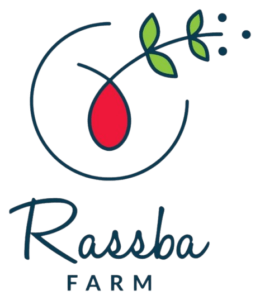Art
- Home
- Art
Rassba Farm Cultivating Flavors, Crafting Stories Through Art.
All art forms are a sensory experience, that has a way of elevating our consciousness. It enriches and adds a subtle, sublime flavour to enhance our life experiences. Food does the same thing when we engage with it mindfully. The sensory experience of full flavoured food has been described to be meditative.
At Rassba Farm, we constantly celebrate the sensory relationship and the life enhancing capability between food and art forms. While we bring you food that is ‘Made of Taste’, we are also engaged in preserving and promoting art forms in our own way.
At Rassba farm, we have also created art installations that you can understand the thematic concepts behind them. We use these art installations to tell stories of farmers and farming in India, that will help you appreciate the life source that we all depend on – which is food that the farmers grow for you. All these installations have been created with recycled material from around the farm.
Do you want to come and create your own art here?
Here are the first of three art installations that you will see at Rassba farm.
Broken Promises
The food security that India went through in the late 1960’s and early 1970’s, gave birth to the Green Revolution. The socialist mindset of the government told farmers not to depend on the rains for farming. Borewells were gifted to farmers.
Farmers became dependent on the marvel of the borewell. The traditional knowledge on how to farm in harmony with the nature – during droughts and floods – got wiped out with the marvel of the borewell.
Soon the industrial development of India progressed and power hungry industries became a priority. What did the government do – they pulled the plug and said – sorry no electricity!
This old borewell with the colors of blue, depicting hope and slowly moving to grey depicts the ‘Broken Promises’ that the farmer had to suffer.
Joint Family
Joint families were part of the culture in India.
It was the back bone for farming, where the entire family – brothers, sisters, aunts, uncles, children, all shared work and the burden of farming.
Then came the industrial revolution. Joint families were not good for the industries. While a joint family will buy one radio, when a joint family splits to 3 nuclear families, then 3 radios can be sold.
India also fell into the trap of the Western industrial revolution motivated of nuclear families and sacrificed its precious joint family system.
These old rejected gas cylinders are our canvas to depict the syndrome of the lost joint family system, that affected farming in ways we cannot even imagine.
Slippery Slope
Every farmer is on a slippery slope. When you hold a vegetable in your hands, the back story of that vegetable is a complicated one, with many risks.
First, the production of a good quality seed is complicated, with no guarantees that that seed will germinate into a plant.
Then, the growth of the plant is subject to vagaries of nature – too much sun or rain, no electricity to pump water out of a borewell, unpredictable nutrients, all affect that plant. There is still no guarantee that the vegetable will be of the size and quality that the urban customer will accept – or reject without any concern or knowledge of the efforts that the farmer has gone through.
This installation depicts the risks that farmers take to bring food to your homes.
